Capitol riot: Lawmakers vote to hold Steve Bannon in contempt
- Published
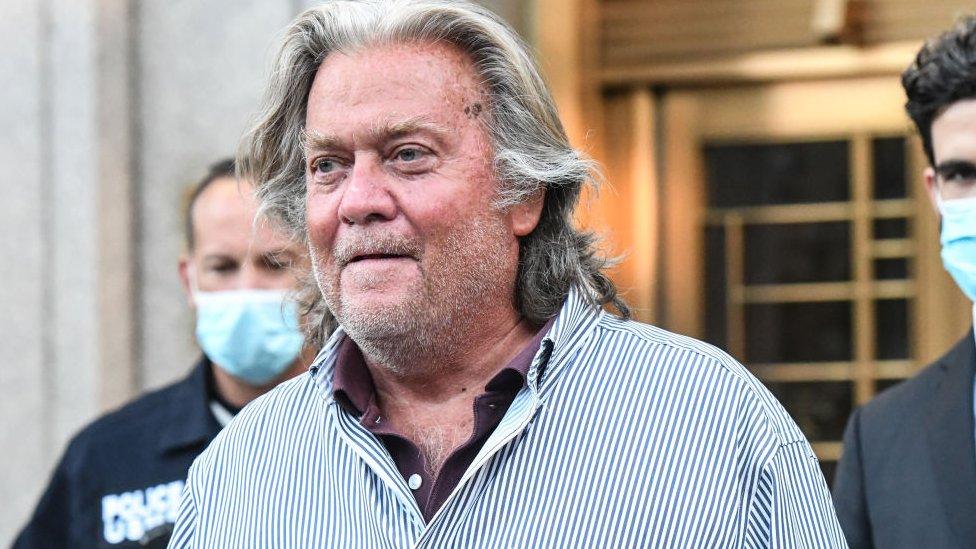
Steve Bannon has not publicly commented on Tuesday's vote in the House Select Committee
US lawmakers investigating the 6 January Capitol riot have supported holding a top aide of ex-President Donald Trump in contempt of Congress.
Steve Bannon, a right-wing media executive who became Mr Trump's chief strategist, was summoned to testify before the panel, but refused to do so.
Lawyers for Mr Bannon argued that communications involving the former president are protected.
If convicted, he could face a fine and up to one year in prison.
"It appears that Mr Bannon had substantial advanced knowledge of the plans for January 6, and likely had an important role in formulating those plans," congresswoman Liz Cheney, a Wyoming Republican and vice-chair of the committee probing the riot said in her opening statement.
Subpoena documents quote Mr Bannon as saying on his radio show the day before the riot "all hell is going to break loose tomorrow".
But Mr Trump has urged his former aides to reject any requests to testify, claiming they have the right to withhold information because of executive privilege - a legal principle that protects many White House communications.
The former president filed a lawsuit on Monday seeking to block the House inquiry from obtaining records from the US National Archives.
Mr Bannon - who was fired from the White House in 2017 but remained loyal to Donald Trump - has not publicly commented on Tuesday's vote. Through his lawyer, he has said that he will not cooperate until Mr Trump's executive privilege claim is resolved by a court.
President Joe Biden's administration says Mr Trump has no legitimate privilege claim.
The boundaries of the claim will be tested on Thursday, when the House of Representatives votes on whether to uphold the contempt charge against Mr Bannon.
If upheld, the case will be referred to the justice department, which has the final say on bringing charges.
When a mob stormed the US capitol
The riot on 6 January saw a mob of Mr Trump's supporters storm the Capitol building to disrupt the official certification of Joe Biden's election victory.
More than 670 people have since been charged with taking part.
Democrats argue that Mr Bannon is stalling to push back proceedings until after the midterm elections in November 2022, which may alter the balance of power in the House, which is the lower chamber of Congress.
Contempt of Congress cases are notoriously difficult to litigate - the last time such a prosecution took place was in 1983 against a Reagan administration official.
Before leaving office in January, Mr Trump pardoned Mr Bannon of charges that he had defrauded donors who gave money to fund construction of a southern border wall.
Related topics
- Published9 October 2021
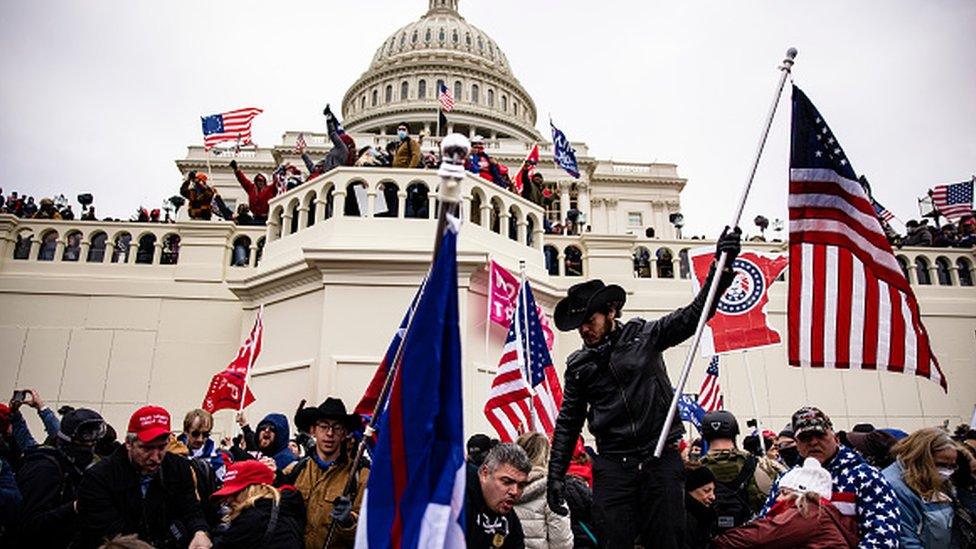
- Published20 August 2020
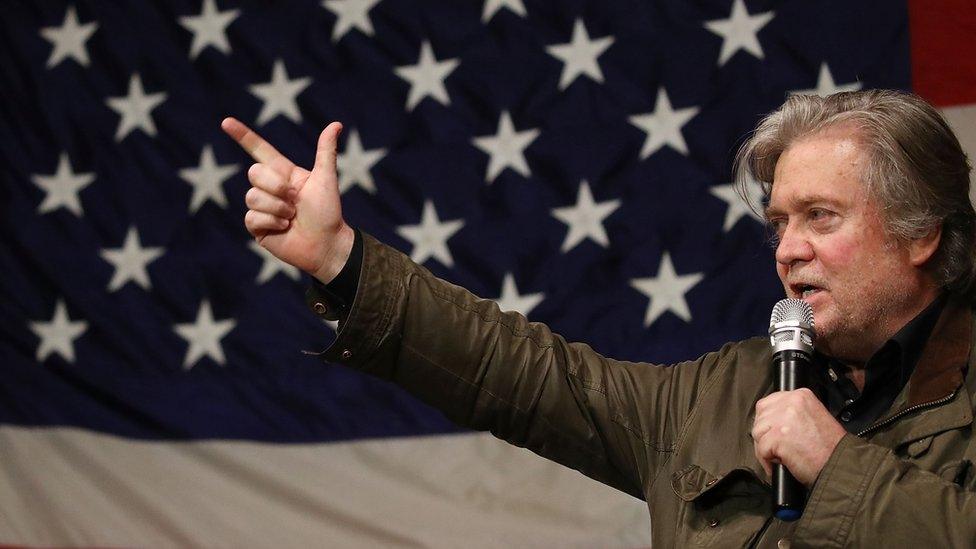
- Published24 September 2021
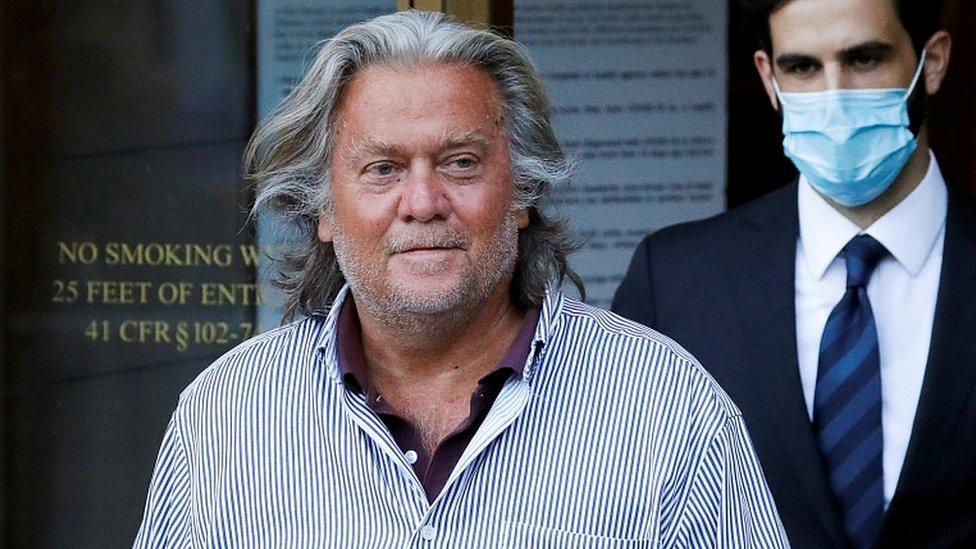
- Published27 July 2021
- Published16 April 2021
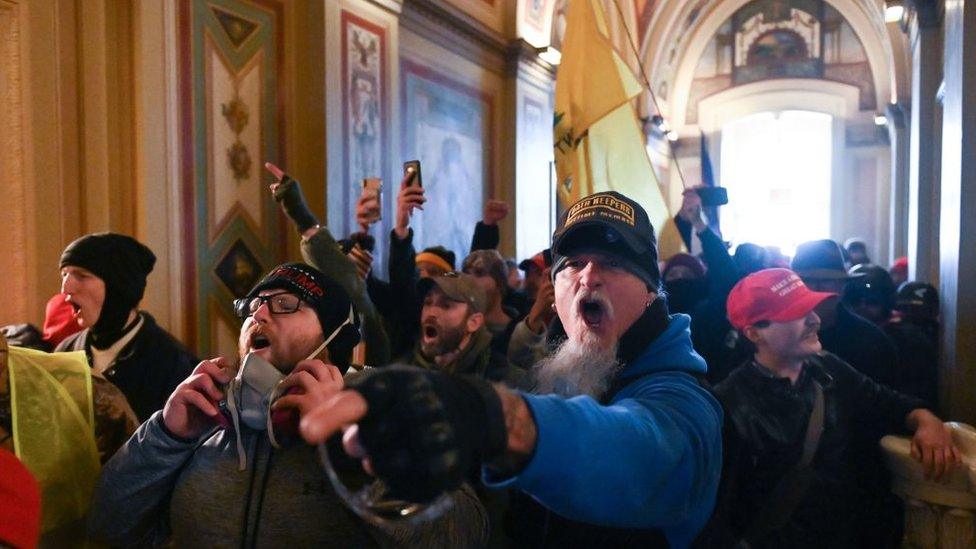
- Published7 January 2021
